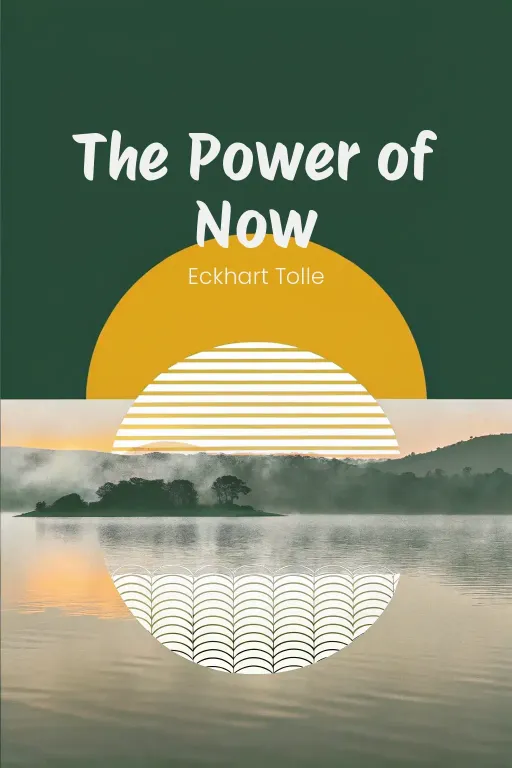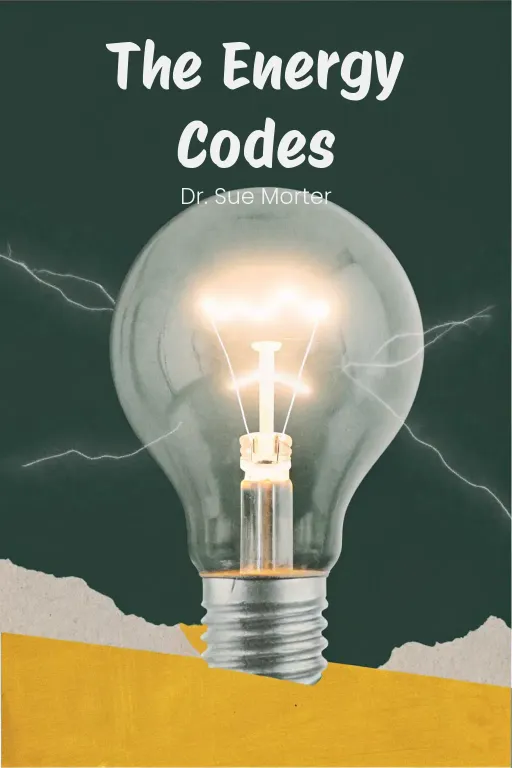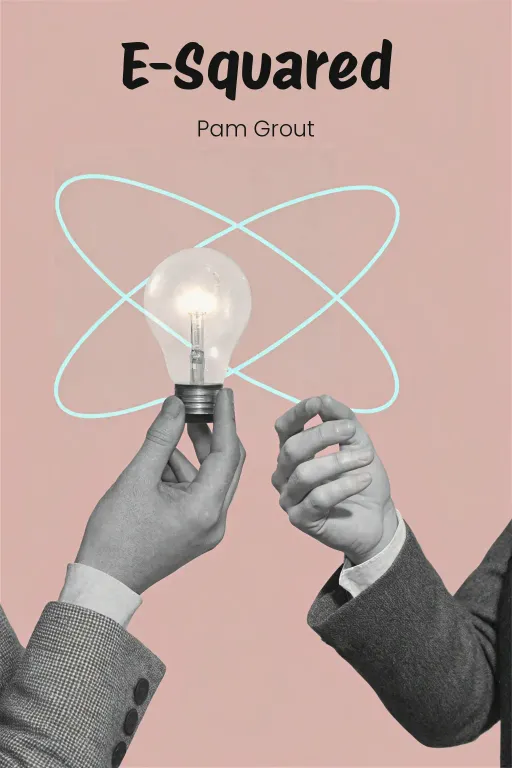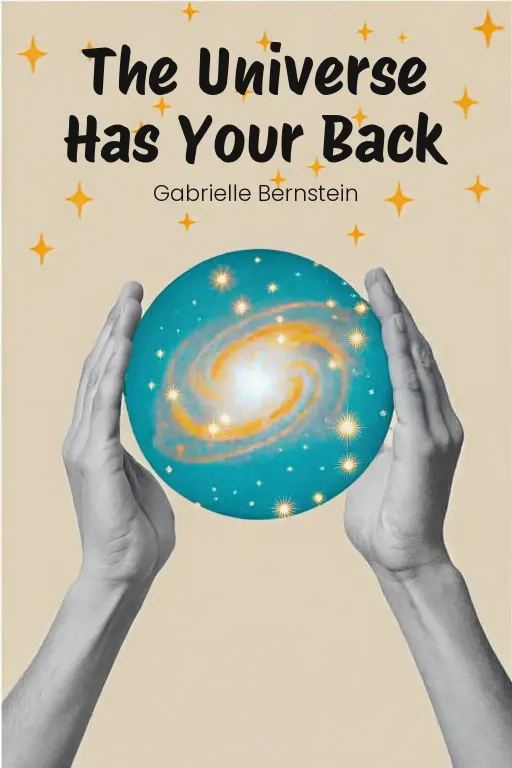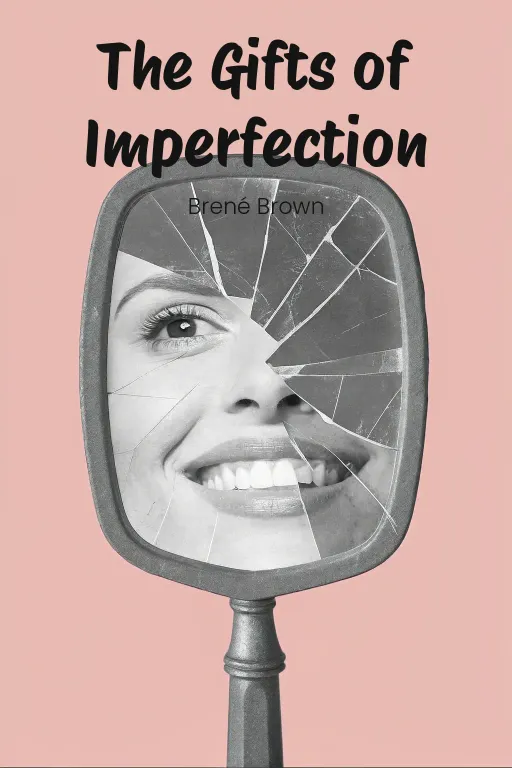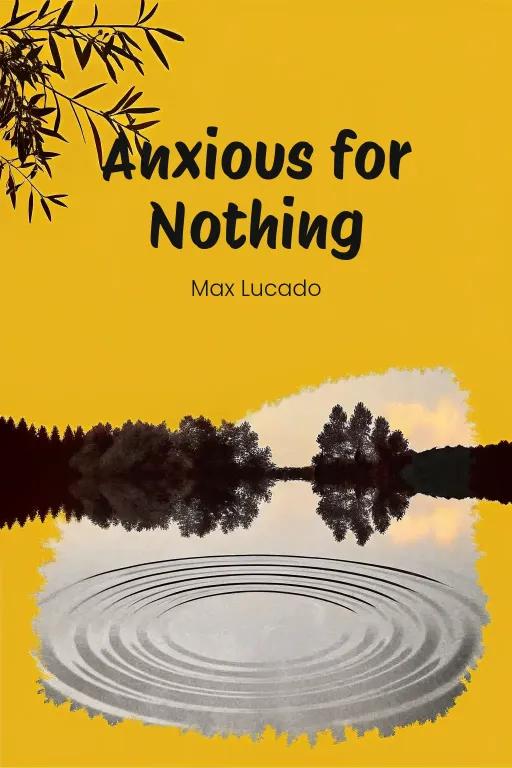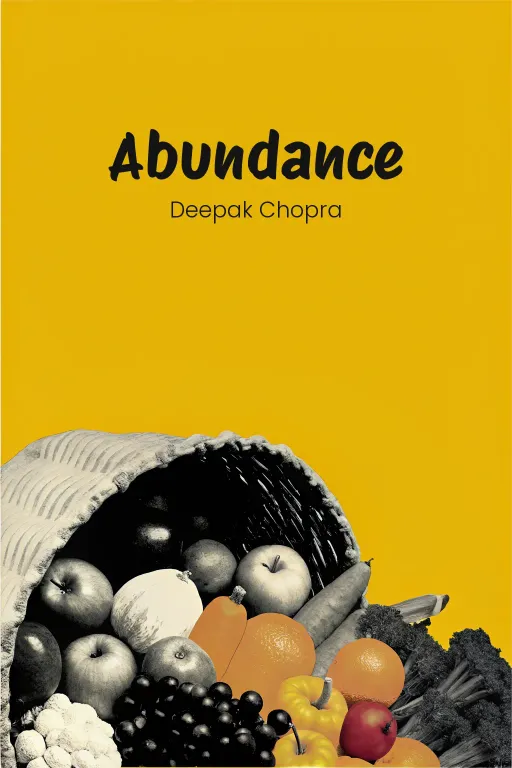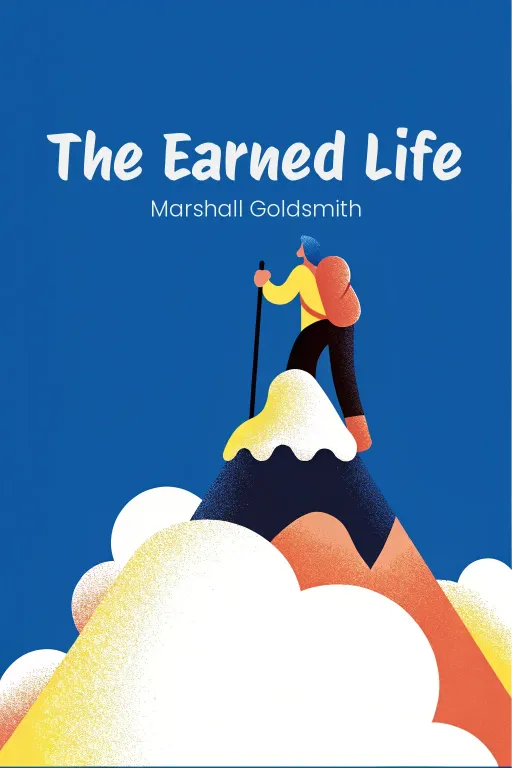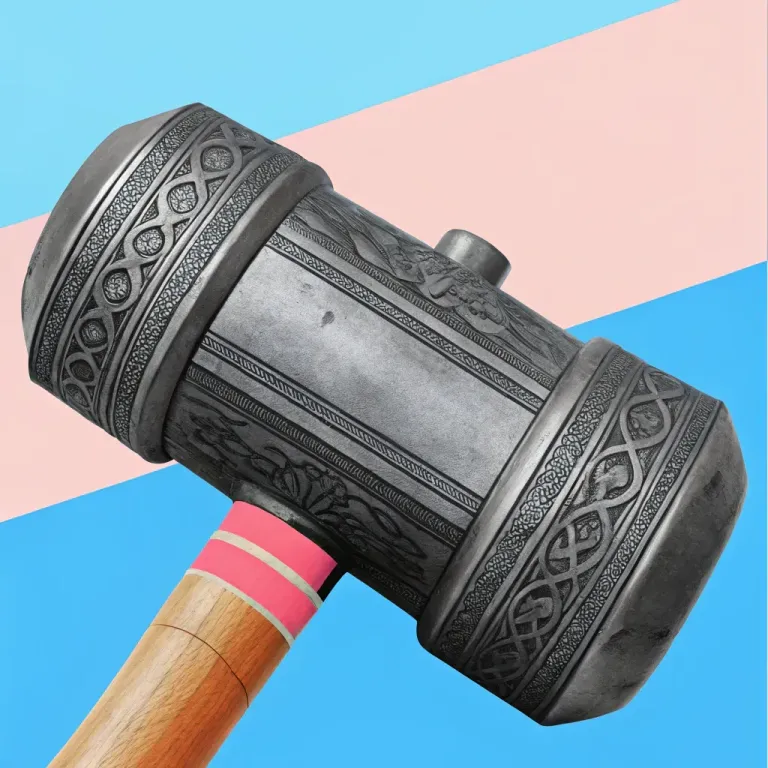
Yoga: Beyond Poses, Find Your Power
Podcast by Beta You with Alex and Michelle
My Yoga of Self-Acceptance
Introduction
Part 1
Alex: Hey everyone, welcome! Today we're really getting into something special Jessamyn Stanley's “Yoke: My Yoga of Self-Acceptance”. It's, like, way more than just a yoga book. It’s raw, it's provocative, and honestly, it's deeply healing. It's about yoga, for sure, but not the airbrushed, Instagram version. Michelle: Exactly. Forget the green smoothies and perfect headstands, right? Stanley dives deep into... into the real stuff. Yoga becomes a way to grapple with the messy parts of life: with identity, with pain, with empowerment. It's about showing up for yourself, all while taking apart the, uh, shall we say “curated” image of mainstream yoga. Alex: Totally. She beautifully weaves together her own story: grieving, healing, accepting her body—with a really sharp critique of societal issues. Things like racism, body image, and cultural appropriation, all within the wellness world. She frames yoga as both a mirror, reflecting where we are, and a map, guiding us through life's complexities and helping us find our own multi-faceted selves. Michelle: Okay, so that brings us to what we're doing today. Our podcast blueprint. We're going to look at “Yoke” through five key angles: First, we'll talk about the spiritual essence of yoga—yoking body, mind, and spirit. Then, we will dive into societal problems, such as the commercialization of yoga and how it can erode its roots, and then we will see how it helps heal trauma and grief. Next, how yoga adapts and changes within different identities? And finally, the wisdom that lies in simply beginning again. So, yeah, this isn’t some fluffy “ohm and peace” chat. Alex: Definitely not. It’s a practice that mirrors real life, right? Beautiful, but messy, and, you know, full of contradictions, yet somehow grounding. Seeing it through these lenses, we get a much richer understanding of how yoga can really transform us. Empower us, in ways that go way beyond just the physical poses. Michelle: Alright, everyone, metaphorically unroll your mats, because this conversation will challenge you, hopefully inspire you, and maybe even make you rethink what yoga “really” is. Not just for Jessamyn Stanley, but for all of us.
The Essence of Yoga Beyond Physical Practice
Part 2
Alex: Picking up where we left off, let’s really dive into the spiritual heart of yoga, as Stanley describes it in Yoke. The term "yoke" itself, she says, really emphasizes this idea of unity—bringing together opposites, like light and dark, strength and vulnerability, even success and failure. And that’s fundamentally what yoga's trying to do, right? Creating space for all aspects of who we are, even if they're messy or seem contradictory. Michelle: Yeah, that "messiness" part really stuck out to me, too. We’ve all seen yoga become this super-polished, almost sterile thing, where it's all about flexibility and how your body looks. But Stanley just totally flips that. She dives straight into the chaos of being human and says that yoga isn’t about filtering that out or leaving it at the studio door. It’s about bringing everything onto the mat. Alex: Exactly! And her own journey really shows that, especially how she relates to asanas—the postures. Like so many of us, she started thinking that the poses were yoga. As if nailing that perfect handstand or crow pose meant you were somehow, I don't know, "winning" at yoga. But her big realization came when she accepted that asanas aren’t about perfection. They’re about being present. Being fully in your body, with whatever emotions or sensations are there. Michelle: Which, honestly, feels pretty radical in our fitness-obsessed world, doesn’t it? I mean, how many yoga classes have we been to where there's this unspoken competition...like, “Can you get your leg higher than the person next to you?” It’s like we’ve turned something that’s meant to be an inward practice into some kind of competitive sport. Alex: Right! That’s where Stanley’s turning point really resonates. She talks about being frozen on her mat, feeling like an imposter, worrying about what people expect, just full of self-doubt. But instead of pushing through it or pretending it wasn’t there, she started moving intuitively. She let her breath and her body guide her into what she needed, not what the outside world valued. That shift—using breath to connect the physical and the emotional—that’s what really captured the essence of yoga for her. Michelle: That reminds me of Satchidananda's teaching, which she mentions, about how asanas create steadiness and comfort. He connects it to mental calm, saying, “If the body is still, it is easy to make the mind still.” Such a simple idea, but it really hits home. Stanley’s realization—that a few mindful breaths could ground her amid all that noise—feels like a mic-drop moment for anyone who’s chasing some external idea of "perfect." Alex: Absolutely. And her discovering pranayama, breathwork, as a way to ground herself goes hand-in-hand with that. The way she talks about leaning into her discomfort, instead of running from it—it’s incredibly empowering. She shares how even just focusing on her inhale and exhale helped her face tough emotions, like feeling inadequate after a typo in her last book. Realizing it wasn’t just about the criticism itself but her reaction to it... that's yoga in action. It's radical self-awareness. Michelle: I remember that story. Because, let's be real, we all know what it’s like to spiral after getting criticized. Especially when you’re carrying the weight of being a marginalized voice in an industry that’s mostly white, able-bodied, and thin. For Stanley, yoga became a way to process that. It wasn’t about avoiding the anger or shame, but just sitting with it, letting it be. And I think that's something we forget in Western wellness culture. You don’t yoga your way out of emotions, you yoga your way through them. Alex: That's such a key distinction. And it really goes back to the heart of yoga philosophy. Yoga isn't about bending into some perfect shape. It’s about unity—uniting your body, your mind, and your spirit. It’s about accepting the whole picture, even the parts that are uncomfortable. Michelle: Which makes you wonder, how did this core idea get so lost when yoga came to the West? I mean, Stanley points out that the commercial side of yoga has chipped away at its spiritual core. When did this idea of "unity" get replaced by leggings and expensive memberships? Alex: Well, you know, sadly, how yoga's marketed often pushes a certain look—a “yoga body”—that leaves a lot of people out and completely misses the essence of yoga. Stanley even talks about struggling to break into spaces that favor white, thin, able-bodied people because of this focus on how you look. So, the bigger question is: how do we, as a society, bring yoga back to being about authenticity and looking inward, instead of performance and buying things? Michelle: I think how she's reclaimed yoga for herself can be a model for others. By sticking to the practice’s original goal—connecting body, mind, and spirit—she not only embraced who she is, fully, but also made space for others who’ve been pushed aside by mainstream yoga culture. She didn’t “fit the mold” because the mold itself was broken. Alex: Exactly. And she reminds us that we all bring something valuable to the mat—whether it’s grief, joy, self-doubt, or resilience. Yoga isn’t about rising above being human; it’s about fully embracing it. And that's that transformative potential that Stanley highlights so powerfully in Yoke.
Navigating Identity and Cultural Appropriation in Yoga
Part 3
Alex: That foundational piece really sets the stage for understanding yoga's role in personal transformation. And speaking of building on yoga's spiritual roots, Stanley really gets into something I think is super important and complex: navigating identity and cultural appropriation in yoga. She tackles the disconnect between yoga's origins and how it's commercialized today, highlighting big issues like race, privilege, and, you know, the erasure of cultural heritage. Michelle: Right, this is where we get into the uncomfortable but utterly necessary stuff, yeah? Stanley doesn’t pull any punches calling out the industry. She's basically saying, "Whitewashing? Commodification? Exclusion? Let's name it. Let’s talk about how something ancient and deeply spiritual becomes a fitness routine with, like, zero context or respect for its South Asian roots." Alex: Exactly. She points out how yoga's roots—Hinduism, Buddhism, Jainism—often get stripped away in Western contexts. The asanas, the postures, become the main focus, instead of the rich philosophical history behind them. Like, yoga teaches us about nonduality, this idea of interconnectedness. But that concept can get twisted to excuse erasure under the banner of universality. So, instead of respecting South Asian heritage, the industry often prioritizes aesthetics – you know, thin, flexible bodies in expensive leggings. Michelle: But it's not just about looks; it’s about who gets access. Stanley talks about the intersection of class and race in these spaces. You walk into a studio, and suddenly, it's like there's an unspoken checklist: predominantly white, affluent crowd, able-bodied. And if you don’t fit in, you're either invisible, or worse, tokenized. Alex: Exactly, and she really brings that home. She shares stories where yoga teachers frame the practice as "global" or "universal," and while inclusivity sounds good at first, it often ignores the history of colonization and systemic inequities that underpin modern yoga. There's this one workshop she goes to, and the teacher just completely dismisses her question about how cultural and personal identities relate to yoga. She leaves feeling dismissed, even gaslit, you know? Michelle: Oh man, I remember that part – the teacher basically shuts her down, implying her question is ignorant rather than insightful. That hits hard. It’s one thing to feel like an outsider, but it's another thing entirely to have that alienation reinforced by the very people who should be encouraging understanding and inclusion. Alex: Right, and it perfectly illustrates the bigger picture. When predominantly white yoga spaces ignore the experiences of POC practitioners, they're causing real harm. Instead of seeing her perspective as a way to enrich the conversation around inclusivity, it was boiled down to her misunderstanding of yoga's supposed “universality.” Michelle: Which is pretty ironic, considering the whole point of yoga is connection. Instead, these spaces can end up feeling like exclusivity wrapped in, like, a mindfulness label, right? And honestly, Alex, makes me wonder how much of this comes down to the commodification of yoga that Stanley talks about. It’s like, ripped from its cultural roots and rebranded as a lifestyle for Western consumers. Alex: She clearly distinguishes between appropriation and appreciation. Appropriation happens when things like chanting Sanskrit mantras or wearing South Asian clothes are used for aesthetics or profit, without any real connection to their sacred meaning. Appreciation, on the other hand, means really engaging with the practice’s origins, not just turning it into something marketable. Michelle: Yeah, but good luck selling “deep engagement” on a yoga studio’s brochure, you know? It’s not exactly profitable to teach people where these chants come from, or how colonization shaped modern yoga. It’s easier to package it as "sun salutations and smoothies.” But the problem is, when you make yoga about mass appeal, you inherently exclude the cultures and practitioners it came from. Alex: And she makes that exclusion feel very real. Stanley points out how South Asian practitioners, the very people for whom yoga is a cultural heritage, often feel alienated in these mostly white spaces. Their inclusion, if it happens, can feel like a performance, especially when their voices aren’t heard in leadership positions. Michelle: I don't wanna keep harping on it, but it sounds like these spaces are happy to use the cultural elements that “look good” while conveniently leaving behind the complex histories. How often do you see someone deeply reflecting on the roots of a chant before posting it on Instagram? Alex: That's where Stanley’s critique is so powerful. She doesn't just point out the problems, but she also sees yoga as a space for reclamation. For marginalized practitioners like herself, yoga becomes a way to assert identity and belonging. It’s not about rejecting the practice because of how it’s been distorted, but about reclaiming it in a way that honors personal and cultural histories. Michelle: And she models that reclamation. Whether it's using breathwork to deal with self-doubt or adapting poses to fit her body, she reshapes yoga into something that works for her. Not for Instagram. Not for external validation. But for her own healing and grounding. Alex: Exactly, and that is profound. Reclamation transforms yoga from a place of alienation to one of empowerment. By focusing on the practice’s philosophy—unity, presence, and connection—Stanley creates a space where she and others like her genuinely belong. Michelle: Absolutely, and she dares the yoga community to do the same. So, the question is, will today’s yoga spaces really take her critiques to heart? Or will they just keep focusing on the glossy image instead of the messy, transformative process that yoga was always meant to be?
Yoga as a Tool for Trauma Healing and Emotional Resilience
Part 4
Alex: So, we’ve talked about the bigger picture of yoga, its challenges in society, and the need to be more inclusive. Now, let's zoom in and explore how yoga can be a powerful tool for dealing with trauma and building emotional strength, something Jessamyn Stanley talks a lot about. This shifts the focus from external issues to how yoga can “really” help us on a personal level. Michelle: Exactly, it's a huge shift! We're going from critiquing cultural appropriation and exclusion to looking at how yoga can help us deal with the messy parts of being human - trauma, grief, anxiety. Stanley shows how she uses yoga not just to cope, but to “really” survive those moments, one breath at a time. Alex: Right. What’s so powerful in Yoke is how Stanley gets into breathwork, pranayama, as a way to start healing. She talks about practicing yoga alone at home for the first time, and it's so moving. She felt lost and overwhelmed but found a sense of grounding just by focusing on her breath. It’s a reminder that something so simple can be so transformative. Michelle: We’re usually taught to think of breathing as just, well, staying alive, right? But when trauma or grief hits you, it's like you lose control – not just of your emotions, but of your body. Your breath gets shallow, your heart races...Stanley shows us that breath can be an anchor. Actually, a way to tell your body, "It's okay, you're safe." Alex: Absolutely. Trauma can “really” disconnect you from your body, and breathwork helps you rebuild that connection. It's amazing how she turns something as ordinary as breathing into a conscious act of self-care. When she was grieving, especially after losing loved ones, she used her breath to face the pain instead of running from it. She’d let herself feel it—inhaling acceptance, exhaling the weight of her emotions. Michelle: The thing that gets me about this is how accessible it is. You don't need fancy classes, equipment, or perfect Instagram lighting. It's just you and your breath, right there. Although, I gotta admit, Alex, that simplicity is also what makes me a little skeptical. I mean, can just breathing “really” help with something as heavy as grief or trauma? Alex: I get that, Michelle. But yoga philosophy supports what Stanley says: Breathwork isn't about magically fixing trauma. It's about creating small moments of calm in the middle of chaos. Deep breathing activates your parasympathetic nervous system – the "rest and digest" mode – which helps release tension. It's not about erasing the pain but about being present with it enough to manage it, to carry it with less effort. Michelle: And she's honest about how hard the process is, which I “really” appreciate. Her story about the Megabus incident – that moment when a stranger invaded her space – shows how trauma can creep into your everyday life. The fear, the hypervigilance... it's not like one yoga session fixes that. But on her mat, she could start to take back some control. By holding each pose and leaning into the discomfort, she slowly untangled the anger and shame she felt after that experience. Alex: Exactly. On her mat, she found a way to be with those emotions, those memories, without letting them take over. And that's what makes yoga different as a way to heal trauma. It's not about pretending everything's fine or forcing yourself to be calm. It's about making space for all the messy parts, even if it means crying in child's pose or shaking in warrior pose. Michelle: That's so different from the "just stay positive" stuff you hear in a lot of wellness circles. Stanley rejects that completely. Her yoga practice isn't about ignoring your pain; it's about being brave enough to look at it. Alex: And that bravery extends to how meditation works with breathwork and asanas. Stanley has a “really” refreshing take on meditation – it's not about sitting serenely with a perfectly empty mind. She calls it a confrontation, like holding a mirror up to the chaos inside. For her, meditation became a way to sit with her grief and fear, not fight against them. It’s an act of radical honesty. Michelle: She says it's like having the most awkward, uncomfortable conversation with yourself, which actually makes a lot of sense! And music is a surprisingly big part of that for her. Using songs that were sacred or personal made meditation feel more approachable and grounded her in her own history. I hadn’t “really” considered how music could be a bridge between emotional chaos and release. Alex: It makes sense, especially considering how deeply music and memory are linked to our emotions. For Stanley, music filled in the gaps where words couldn't reach. It allowed her to connect with parts of her grief and identity in a new way. This mix of traditional yoga with things like music shows how flexible and personal healing practices can be. Michelle: But it’s not just about personal healing, is it? Stanley also connects her yoga to the challenges she faces as a Black, queer, plus-size woman. She deals with racism, body shaming, and feeling excluded from yoga spaces that are mostly white and thin. And yet, she finds ways to reclaim yoga – to make it her own, despite all that. Alex: That's where the resilience comes in, right? Yoga didn’t just help her with her internal struggles; it gave her the strength to stand up to external ones. Through yoga, she learned to take up space, to feel worthy, in a world that often tells people like her otherwise. That's what makes her story so inspiring – the way she heals internal wounds while fighting against societal harm. Michelle: It's what makes her story so much bigger than just her own experience. She's not saying, "Here's exactly how I healed; now you do the same." She's saying, "Here's how I learned to sit with my pain and grow. Maybe yoga can help you find your own way too.” It’s not a prescription; it’s an invitation. Alex: Exactly! An invitation to see yoga not as a perfect, commercialized fitness routine, but as a deeply human practice. Raw, vulnerable, and imperfect. And that's what makes it not just a way to heal from trauma, but to build the strength to face whatever life throws at you.
Self-Acceptance Through Unconventional Practices
Part 5
Alex: So, after facing those systemic barriers, yoga became a real refuge for Jessamyn, a place for personal healing. And that leads us to something really interesting: her journey to self-acceptance through practices that aren't exactly traditional. It's amazing how personalizing yoga can free you from what society expects. Michelle: Exactly, Alex. I mean, Stanley's willingness to shake things up—like cannabis-infused yoga or ditching the silence for music—it feels like a direct challenge to the yoga establishment, the purists. She's taking what's considered sacred and reminding us that the point isn't to follow rules, but to create something that works for you, that fits your life. Alex: That's really the heart of her approach. She wants us to forget about "shoulds" when it comes to yoga. Instead of asking, "What does tradition say I have to do?", she asks, "What brings me joy and helps me connect in this moment?" And in her book, Yoke, the best examples of this mindset are how she uses cannabis to deepen self-connection and music to really feel her emotions. Michelle: Okay, let's talk about the cannabis part first. I was surprised by that. I mean, we hear so much about yoga being this pure discipline, which seems at odds with cannabis. But Stanley kind of turns that idea on its head, right? She sees it almost as a key to unlock your true self, to get rid of all the layers we put on. Alex: Precisely. It's not about escaping, for her. She uses it to quiet that inner critic, that constant noise from society, and create space for real self-reflection. It lets her be present with her emotions—not avoiding them, but really connecting with them without judgment. Michelle: Yeah. It's interesting how she compares her yoga teacher training to her use of cannabis. The teacher training sounds so emotionally draining—intense fasting, tough physical stuff, all while, you know, dealing with these deep spiritual lessons. But by adding cannabis during times of self-reflection, she got to what she calls an "ethereal space," where she could actually see her emotional blocks, like judgment, self-righteousness, even annoyance with others. Alex: And it's all about intention, right? She says it wasn't about numbing herself from the difficulties of fasting and yoga; it was about embracing them fully. She turned this challenge from something she felt ashamed of into a chance to understand herself better. It's a really nuanced take on discipline—less about perfection or suffering, more about discovering yourself. Michelle: Which makes you wonder, why is cannabis still so taboo in wellness circles? Because, let's be honest, a lot of wellness spaces, especially yoga studios, sell this image of perfect purity. Substances like cannabis just don't fit that pristine picture they're trying to project. Alex: And that's where Stanley directly confronts the stigma. By using cannabis in her yoga, she's breaking down the idea that healing means following these strict, sanitized rules. She's showing us that personal healing doesn't have to be approved by everyone else. By making her practice fit her emotional needs, she freed herself from what other people think yoga "should" be. Michelle: Exactly, but it's not just about breaking the mold, is it? It's about taking control of your own healing. She's saying, "This works for me. That's enough reason for it to be part of my yoga." There's something really empowering about that, especially for people who are often told how they should or shouldn't engage with wellness practices. Alex: And speaking of personalized healing, we have to talk about her use of music in yoga and meditation. To me, this part of Yoke feels so human because it taps into something we all have—music connected to memories, our identity, our culture, even our ancestors. Stanley uses music not just as background noise, but as a way to reach deeper emotions. Michelle: Definitely. I noticed how she uses different genres—not just the usual yoga stuff like ambient sounds or chanting, but hip-hop, spirituals, soul. You know, she makes the point that silence during meditation can sometimes feel isolating, while music creates an easier way in, an emotional access point. Alex: That's a great way to put it, Michelle—“emotional access point.” Music becomes this guide into complexity, helping her access emotions she might not otherwise be able to reach. For example, she talks about her experiences as a fat, Black, queer yoga instructor in spaces that are traditionally very exclusive, and how music helped her reclaim joy and take up space without apologizing. Michelle: And let's be real, joy can be a radical act, right? Especially when you're talking about systemic racism, body shame, and being excluded by society. Stanley's way of doing meditation completely changes the idea that it has to be serious or rigid. Instead, bringing joy, rhythm, and even movement into it turns meditation into a form of resistance. It's like she's saying, "I refuse to shrink myself, even when I'm being still." Alex: Which goes right back to the main idea in her work: challenging rigid traditions and changing practices to fit the person doing them. Stanley's willingness to use things like cannabis and music really gets to the heart of a bigger question—who is yoga really for? And her answer is broad: yoga is for everyone, as long as we make it truly inclusive and adaptable. Michelle: But it's a double-edged sword, isn't it? We can't forget the criticism that anyone breaking the rules faces—especially when those rules are enforced by spaces that are dominated by white people and driven by profit. I mean, Alex, how many gatekeepers do you think would say what she's doing isn't "real yoga"? Alex: And yet, she doesn't worry about fitting into their narrow definitions. She sees the power in turning these so-called unconventional practices into tools for self-affirmation. Whether it's cannabis or music, they're extensions of who she is. These tools aren't taking away from yoga; they're adding to it—layers that make it more personal, more accessible, and ultimately more transformative. Michelle: So, at its core, it sounds like Stanley's telling us, "Forget tradition if it excludes you, and adapt it so it heals you." What I really appreciate is that she's not trying to overthrow conventional yoga out of spite, but to make it wide enough for everyone to participate without losing themselves. It's a really powerful invitation—one that redefines what inclusion really means.
The Beginner’s Mindset: Embracing Imperfection
Part 6
Alex: So, having talked about how yoga can be healing, let's dig into how personalizing your practice can really deepen your connection with yourself. And this naturally leads us to a “really” transformative lesson from Jessamyn Stanley’s Yoke: cultivating what she calls the beginner’s mindset—basically, embracing imperfection. It's amazing how this one idea ties everything together—healing, resilience, even identity—by showing us that true growth isn't about chasing perfection, but about being open to starting fresh, again and again. Michelle: I totally agree. And I love how she reframes the beginner's mindset. You know, you hear it a lot in Zen Buddhism – this whole thing about openness, curiosity, and letting go of what you think you already know. But Stanley makes it so relatable. She takes this potentially abstract concept and “really” brings it down to earth, reminding us that real growth happens when we lean into those imperfections instead of running away from them. Alex: Exactly! For Stanley, discomfort is like a teacher, and imperfection is just part of the whole process. There's this powerful example she shares about a workshop on the roots of yoga. She's physically in the front row, ready to learn, but she’s also one of the only fat, Black, queer people in a space that's overwhelmingly white. So she's walking in with excitement, but also, understandably, a lot of apprehension. Michelle: Hmm, and let me guess… her apprehension was pretty spot on? Alex: Oh yeah. When the teacher starts talking about yoga’s universality—this idea of oneness and nonduality—Stanley can’t help but feel like it's erasing the real experiences of practitioners whose cultural and personal identities are often ignored. As a Black woman from the South, she felt like her cultural history was being dismissed under the idea that “we’re all the same.” So, bravely, she raises her hand to question that idea. And instead of open conversation, she just gets dismissed. The teacher basically brushes her off, implying that her discomfort just comes from ignorance because she 'doesn't know enough.' Michelle: That’s infuriating on so many levels. First off, the nerve of erasing someone’s lived experience under the guise of—what—philosophy? And then to turn around and gaslight her for even questioning it? What “really” strikes me is how much weight we tend to give authority figures, like teachers, even when their words just invalidate us. Alex: Stanley's experience “really” nails that feeling. That sense of being invalidated—combined with imposter syndrome—left her feeling deeply uneasy. But here’s where that beginner’s mindset shifts things. Instead of taking that moment as proof that she didn't belong, she looked at why she had given her teacher's validation so much importance to begin with. And, Michelle, this is so key: she reframed the discomfort as a lesson, not a roadblock. Michelle: That's such a powerful shift in perspective. She could have easily walked out of that workshop feeling defeated, or like she needed to prove herself. But instead, she “really” owned that discomfort and asked herself, "Why am I letting someone else's authority dictate my connection to yoga?" That takes “real” work, re-wiring yourself to see rejection as a step forward. Alex: And it goes even further than that. She comes to see that our most important teachers aren’t always people – sometimes they're just experiences. Even those messy, challenging moments like this one can guide us towards self-reflection and growth – if we let them. Michelle: So, it's not about whether the workshop was a success in the traditional sense. It’s about what she took away to deepen her own relationship with herself. That’s such a nuanced way of dealing with imperfection—not as failure, but as part of the process of becoming. Alex: Exactly. And this ties in beautifully with another core part of the beginner's mindset: accepting imperfection in your actual practice. One of the most powerful parts of Yoke is when Stanley talks about returning to yoga after immense grief and personal loss. She couldn’t connect with the usual studio spaces, which often felt exclusive or judgmental. So, she just unrolled her mat in her cramped living room and started practicing on her own. Michelle: That image alone is such a contrast to the polished yoga we see in studios, isn't it? No sleek mirrors, no curated playlists. Just a splintered floor and a mat—which, I have to say, sounds pretty liberating in its simplicity. Alex: It “really” is. Her practice wasn’t about nailing poses or doing elegant sequences. It was about showing up for herself, moment by moment, even if the movements felt clumsy or uneven. Every wobble, every pause – it all became part of the story she was telling with her body. That willingness to be imperfect gave her the freedom to “really” connect to yoga as an expression of self-compassion, not a performance. Michelle: And that’s where things “really” come full circle, right? We spend so much time chasing these ideals—whether it's the perfect yoga pose or some polished version of ourselves in life—but Stanley flips that. She says, “What if the imperfections are actually the point? What if this messy, honest process is where the “real” transformation happens?" Alex: It's such a profound lesson. Especially when you think about it in terms of imposter syndrome. Stanley openly struggles with this feeling that she's not good enough—whether it’s in yoga spaces or the broader wellness world. But instead of letting that define her, she uses the beginner’s mindset to approach those feelings with curiosity instead of judgment. Michelle: And here’s the kicker: she doesn’t try to fix her imposter syndrome. She just… sits with it. Which is so different from the usual advice we get, which is all about building confidence or faking it 'til you make it. Stanley's approach feels more radical—she leans into the vulnerability, embraces the struggle, and gives herself permission to grow through it. Alex: And it's that openness—allowing herself to be a work in progress rather than striving for some finished state of success—that truly defines the beginner's mind. Stanley’s message is clear: embracing imperfection is how we learn, evolve, and find our most authentic selves. Michelle: I think we could all use a bit more of that, couldn't we? Whether it's yoga, our careers, or just life in general, there's so much pressure to have it all figured out. But Stanley reminds us that there’s growth—meaningful, messy growth—in just being willing to start anew, every single day. Alex: And that willingness to begin again, even when things are uncertain, is what ultimately connects yoga to life. As Stanley shows us, the “real” wisdom isn't about having all the answers—it’s about continuously asking the questions that help us rediscover who we are.
Conclusion
Part 7
Alex: So, as we bring our deep dive into “Yoke: My Yoga of Self-Acceptance” to a close, we've really explored how Jessamyn Stanley views yoga as so much more than just the poses, right? It's about bringing everything together – body, mind, spirit – and, you know, how it reflects all the messy parts of life, from healing old wounds to really owning who you are, even when society tries to tell you otherwise. Michelle: Right, and we've definitely not shied away from the tough stuff, have we? We've talked about how yoga can sometimes become this whole commercial thing, losing its roots. But, you know, what's amazing is how Stanley flips that around, turning yoga into this safe space – not just for herself, but showing us how to make it inclusive for everyone. It's about healing, adapting, and accepting that we're all works in progress. Alex: Exactly! And that's where the real wisdom lies, I think. It's that transformation isn't about being perfect. It's about being real, sitting with all the messy bits of ourselves. Whether you're on the mat or just living your life, yoga teaches us that just showing up, being vulnerable, is the first step to finding who you really are. Michelle: So here's the big question, how can you bring that fresh, beginner's mindset into your day-to-day? Whether it means pushing past your comfort zone, questioning the status quo, or just being kinder to yourself, how will you find that unity – your own "yoke" – amidst all the contradictions that make you, well, you? Alex: Thanks so much for joining us on this journey. Let's all try to keep this feeling of openness and reflection with us as we go about our days. Because, like Jessamyn Stanley says, it's not about the pose; it's about being yourself, practicing being yourself. Until next time! Michelle: Absolutely. Take it easy, everyone. Keep asking questions, keep evolving. We'll catch you in the next one!
